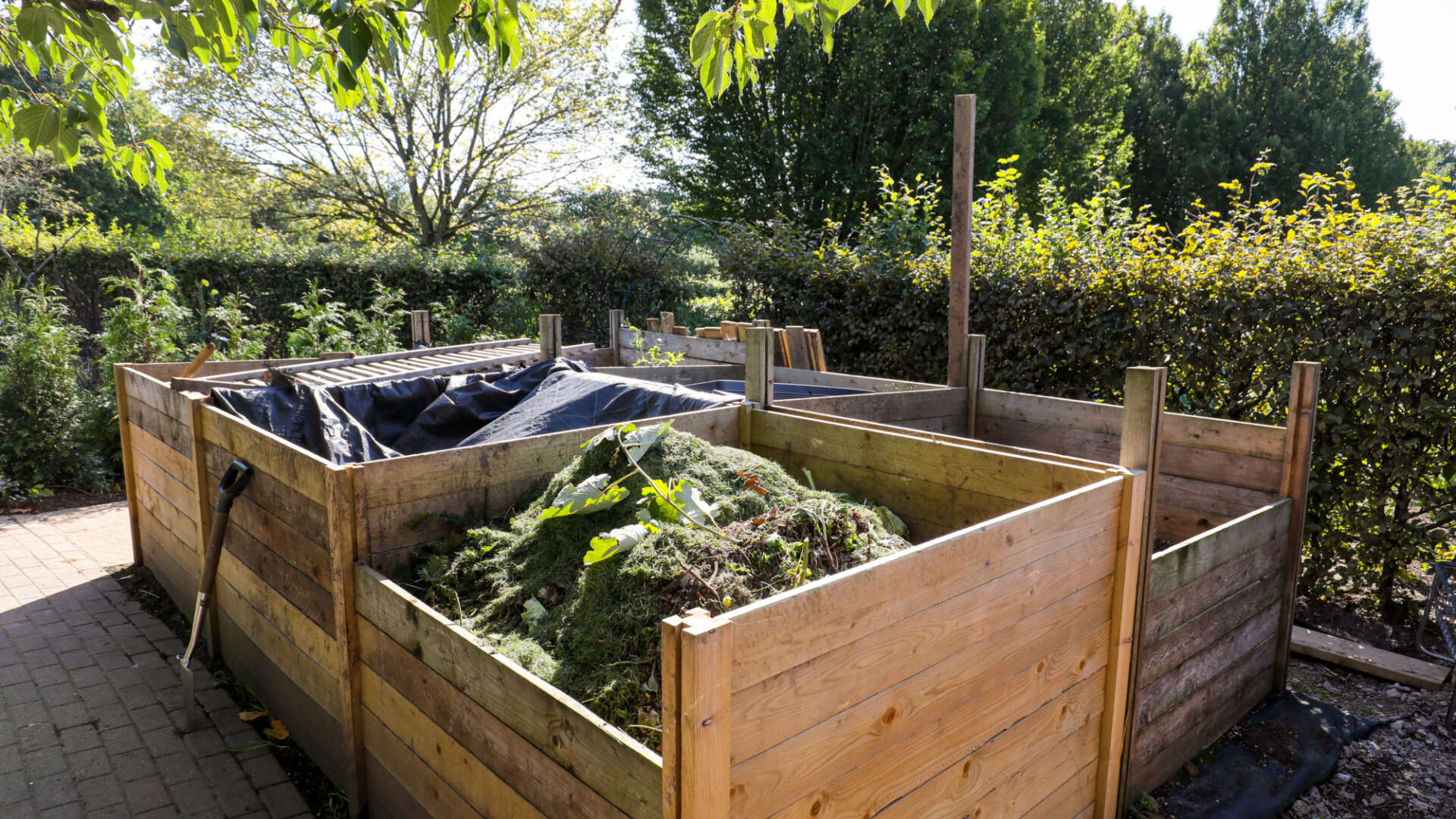Composting
How to make compost

You can make compost simply by adding compostable items to a compost heap when you feel like it. It will all compost eventually but may take a long time and if the mix is unbalanced, may not produce a very pleasant end product. With a little extra attention, you could improve things dramatically. If you want to produce more compost in a short time and are able to put more effort into it, follow the 'HOT HEAP' route.
How to make good compost
To make good compost you need a more or less equal amount of 'greens' and 'browns' by volume. You can also include small amounts of the 'other ingredients' listed in the What can I compost? section.
Cool composting systems
Try, if possible, to collect enough compost materials to make a layer of at least 30cm or more in the compost bin. Weed the garden, mow the lawn, empty the kitchen bucket! Mix in some straw, woody prunings, scrunched up cardboard packaging eg cereal boxes – this helps create air spaces within the heap. It may help if you place a few woody plant stems or small twigs on the bottom first as this will improve the air circulation and drainage
Continue to fill the container as and when you have the ingredients. If most of what you compost is kitchen waste, mix it with egg boxes, toilet roll middles, and similar household paper and cardboard products to create a better balance
When the container is full - which it may never be as the contents will sink as it composts - or when you decide to, stop adding any more. Then either just leave it to finish composting (which could take up to a year) or go to Step 4
Remove the container from the material or the material from the container – whichever you find easiest. If the lower layers have composted, use this in the garden. Mix everything else together well. Add water if it is dry, or add dry material if it is soggy. Replace in the bin and leave to mature
Hot composting systems
If you have the energy, give the heap a good mix several times. Gather enough material to fill your compost container in one go. Some of this may have been stored in a cool heap and have started to rot slightly. Make sure you have a mixture of soft and tough materials
Chop up tough items using shears, a sharp spade (lay items out on soil or grass to avoid jarring) or a shredder
Mix ingredients together as much as possible before adding to the container. In particular, mix items, such as grass mowings and any shredded paper, which tend to settle and exclude air, with more open items that tend to dry out. Fill the container as above, watering as you go
Within a few days, the heap is likely to get hot to the touch. When it begins to cool down, or a week or two later, turn the heap. Remove everything from the container or lift the container off and mix it all up, trying to get the outside to the inside. Add water if it is dry, or dry material if it is soggy. Replace in the bin
The heap may well heat up again; the new supply of air you have mixed in allows the fast acting aerobic microbes, ie those that need oxygen, to continue with their work. Step 4 can be repeated several more times if you have the energy, but the heating will be less and less. When it no longer heats up again, leave it undisturbed to finish composting
Mixed composting systems
There’s nothing wrong with doing a bit of both. Fill your heap as you create waste (as for the cool method), then turn it when you have time. This will help it heat up. You can turn it as much or as rarely as you please – the more often you turn the heap, the quicker your compost will be ready.
When is compost ready?
Compost can be made in as little as six to eight weeks, or, more usually, it can take a year or more. In general, the more effort you put in, the quicker you will get compost.
When the ingredients you have put in your container have turned into a dark brown, earthy smelling material, the composting process is complete. It is then best left for a month or two to 'mature' before it is used. Don't worry if your compost is not fine and crumbly. Even if it is lumpy, sticky or stringy, with bits of twig and eggshell still obvious, it is quite usable. It can be sieved before use if you prefer. Any large bits can be added back into your new compost heap.
Join Garden Organic!
By becoming a Garden Organic member you can join thousands of people who are already leading the movement for an organic and sustainable future for us all. And get great member benefits!
Join today